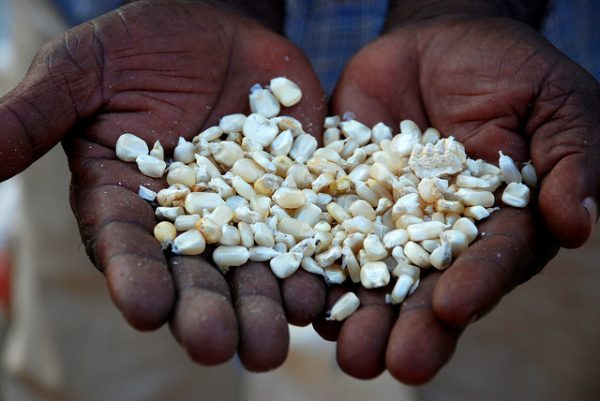Genetically Modified Organisms (GMOs) or in this case seeds are manufactured in a lab as a means to boost agriculture and food security in Africa. However, the move continues to face resistance from African countries who are hell bent on preserving its traditional seed base instead.
Earlier on this year, Ghana hosted a conference focused on the question of genetically modified organism (GMO) seed varieties versus those that traditionally spawned the continent’s staple crops. Issues such as the increasing commercialization of food and agriculture, the diversity of crops, food as part of culture and identity and sustaining food needs without a switch to GMO agriculture were brought up in their discussions.
The conference, which had experts and activists from Ethiopia, Kenya, Togo, South Africa and Zimbabwe took place in the northern city of Tamale. Tamale holds the region in Ghana where agriculture is a driving force in the local economy.
In Ethiopia, local farmers have rejected GMO agriculture. This is apart from the genetically modified insect-resistant Bt cotton. The rejection persists despite intensive lobbying, often by the purveyors of GMO seeds, multi-national giants.
Sulemana Abdullai, the board chairman of the African Biodiversity Network, (ABN) expressed his doubts about GMO as well, saying it is not a sure way to go. He goes on to defend his stand by pointing out the lack of sufficient evidence to indicate the success of genetically modified crops not only in in terms of food security, but also nutrition and income security.
Contrary to Mr. Abdullai, Ridwan Mohammed of the Institute for Sustainable Development (ISD), is of the opinion that sustaining food diversity through the use of traditional seeds is possible in Africa. He insisted that the diversity in question is not only that of crops, but in diet as well. He was also quick to add that they are working with farmers in order to preserve and conserve traditional seed varieties.
Meanwhile, the United Nations Food and Agriculture Organization (FAO), in its literature on GMOs, warns that the transfer of allergenic genes in different crops can cause dangerous reactions in people with allergies. Furthermore, it also outlines some of the concerns that have been raised over seed market dominance by a few agricultural companies on small scale farmers.
In Africa, for instance, Monsato – a US Based agrochemical and agricultural biotechnology corporation and the world’s largest GMO seed and pesticide seller – has been criticized over its market dominance.
On the other hand, a high crop yield is one of the arguments advanced by proponents of GMOs, increasingly as agriculture is seen as a commercial venture.
Many developed nations are seeing a growing trend away from the genetically engineered crops towards organic farming. The advent of genetically engineered foods started with the release of a delayed-ripened tomato more than two decades ago. It has since shifted to cash crops such corn, soya, canola and cotton.









